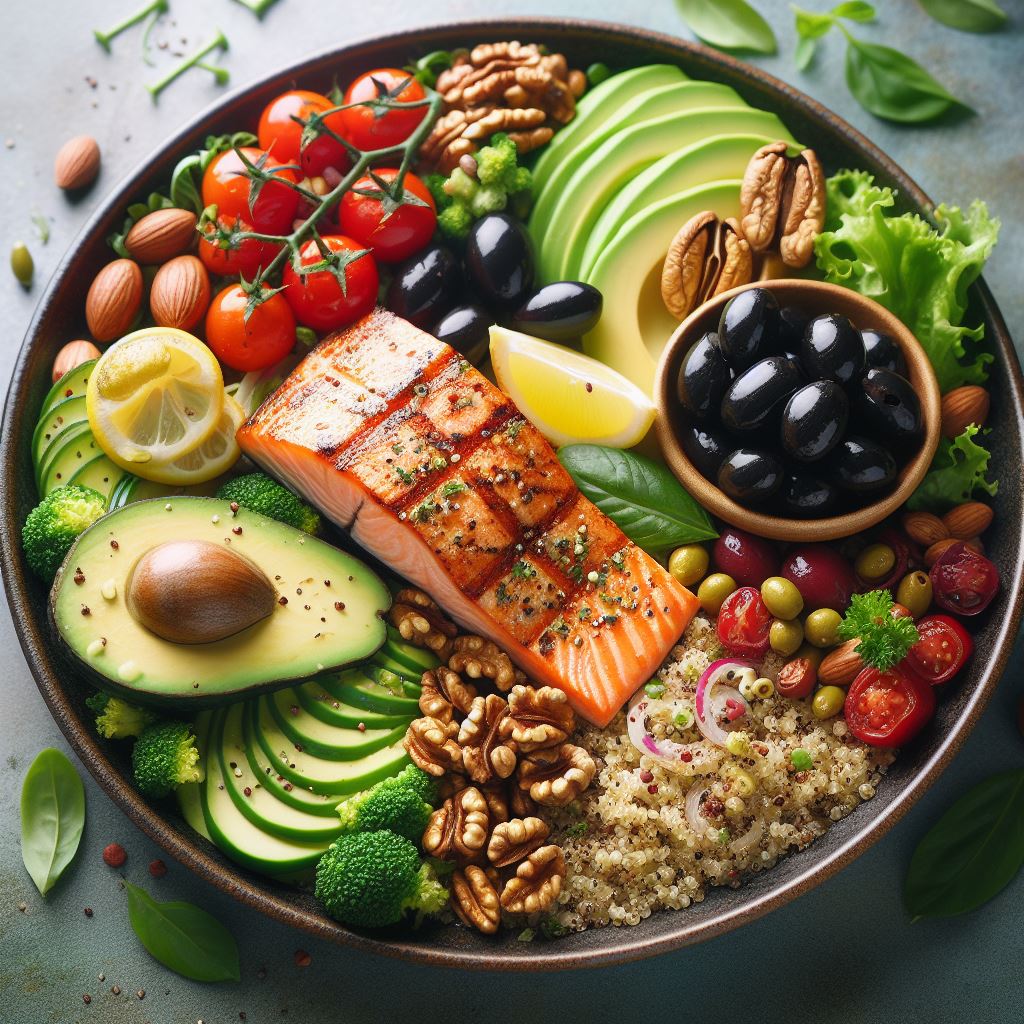1. The importance of diet for people with neck and shoulder pain
Neck and shoulder pain (neck and shoulder pain) is a condition in which the muscles in the neck and shoulder area are stiff, causing pain and limiting movement when turning the neck or head. People who are susceptible are those who sit a lot, do office work, drive or those who often work in a fixed position with little movement.
Neck and shoulder pain not only makes the patient feel tired, uncomfortable, and affects daily life, but is also a warning sign of many serious bone and joint diseases such as cervical spondylosis, cervical disc herniation, spinal spurs...
Therefore, we should not be subjective, when there are signs of neck and shoulder pain, we need to go to specialized medical facilities to determine the cause and get the right treatment. Treatment methods often include a combination of medication with physical therapy and rehabilitation. Surgical treatment is only indicated when necessary.
Patients need to strictly follow the doctor's instructions, avoid stopping treatment when the pain subsides. Limit activities that strongly twist the cervical spine because it can cause further damage to the nerves. Avoid lying or sitting in one place for too long, which can cause the neck muscles to become stiff and less flexible.
Neck and shoulder pain is related to the structure of bones and joints, so in addition to using drugs and other physical therapy methods, a balanced diet, prioritizing anti-inflammatory foods and minerals necessary for bones and joints can also improve the condition, strengthen the health of bones, nerves and connective tissues, helping to reduce inflammation and relieve pain effectively.
In the daily diet, priority should be given to foods such as: green vegetables, fresh fruits, fatty fish, nuts, seeds, beans, whole grains, some herbs, healthy fats... Limit eating foods high in fat, sugar, processed foods, stimulants such as alcohol, beer, cigarettes... to help reduce inflammation naturally, promote the body's healing process.

Anti-inflammatory foods help improve neck and shoulder pain.
2. Essential nutrients for people with neck and shoulder pain
Anti-inflammatory foods
Fighting inflammation may require the use of anti-inflammatory drugs, but natural remedies are also effective. Research shows that a diet rich in anti-inflammatory foods not only helps reduce pain and inflammation, but also makes our bodies healthier.
Antioxidants in anti-inflammatory foods help fight free radicals that damage cells, helping to reduce the risk of diseases related to chronic inflammation, including those related to osteoarthritis.
Some common anti-inflammatory foods include foods rich in antioxidants and vitamins A, B, C, E; healthy fats such as: vegetables, olive oil, berries, whole grains, nuts, fatty fish...
Calcium rich foods
Calcium participates in the process of bone development, recovery and regeneration, helps heal cartilage damage and damaged joints, and effectively prevents and relieves pain. Therefore, this is a recommended food group for people with neck and shoulder pain accompanied by uncomfortable numbness.
To supplement enough calcium, patients should use calcium-rich foods such as: milk and dairy products, green leafy vegetables, sardines, nuts, cheese, beans, almonds, amaranth, shrimp, crab...
Foods rich in vitamin D
For the body to absorb calcium effectively, it is necessary to supplement enough vitamin D. The best sources of vitamin D are salmon, herring, sardines, cod liver oil, egg yolks, mushrooms, cereals, oatmeal, soy milk, etc.
Foods rich in magnesium
Magnesium is a macromineral that plays a very important role in many metabolic processes in the body. Magnesium can replace calcium in the transportation and mineralization process of bone formation, integrating minerals. Many research results show that magnesium deficiency in the body is one of the causes of bone and joint pain and neck and shoulder pain.
To get enough magnesium, your diet should include foods rich in magnesium such as seafood, meat, dark green leafy vegetables, beans, sesame, peanuts, whole grains, nuts, etc.
Foods rich in vitamin C
Vitamin C is a water-soluble vitamin that acts as an antioxidant and plays an important role in the body's immune function. Studies have also shown vitamin C's potential to promote collagen formation, which helps maintain the integrity of muscles, tendons, bones, and skin. Adequate vitamin C intake can help the body rebuild damaged tissue more quickly after an injury.
The richest food sources of vitamin C include citrus fruits, dark green leafy vegetables, bell peppers, melons, strawberries, broccoli...
Foods rich in fiber
Eating foods rich in fiber helps eliminate waste, improve digestion and increase metabolism. In addition, fiber also helps maintain bone and joint health, supports weight loss, reduces pressure on the spine leading to pain, supports pain relief and reduces inflammation.
Food sources rich in fiber are abundant, including vegetables, fruits, beans, whole grains such as: green leafy vegetables, carrots, broccoli, berries, bananas, apples, oats, lentils, peas, green beans...
Omega-3 fatty acids
Omega-3s play an important role in preventing inflammation. When the body breaks down omega-3s, it uses them to create anti-inflammatory and antioxidant compounds. This helps reduce inflammation and protect cells from damage, improving joint pain and stiffness.
Our bodies cannot produce omega-3 on their own and need to supplement it through our diet. Omega-3 is abundant in foods such as: fatty fish (anchovies, herring, salmon, mackerel, etc.); plant foods such as some nuts, walnuts and vegetable oils.

People with neck and shoulder pain should limit eating processed foods.
3. Some foods to limit when suffering from neck and shoulder pain
When suffering from osteoarthritis and neck and shoulder pain, patients should limit foods that stimulate inflammatory reactions, reduce resistance, cause weight gain, increase blood sugar levels, etc. Foods related to inflammation can increase the level of neck and shoulder tension and joint pain.
Some common foods are thought to contribute to inflammation and promote inflammation in the body such as: red meat, fatty meat, refined grains, refined sugar, processed foods, fried foods...
Foods high in saturated fat and foods that are heavily processed and high in fat and sugar are not good choices if you have osteoarthritis. These foods can lead to weight gain, increased blood sugar, and high cholesterol, all of which are linked to inflammation, which is not good for people with neck and shoulder pain.
It is necessary to limit or avoid the use of stimulants such as alcohol, beer, and alcoholic beverages. Alcohol abuse is associated with an increased risk of osteoarthritis and can worsen the symptoms of the disease, increasing the frequency of painful arthritis attacks. The more alcohol you drink, the higher your CRP level - a marker of inflammation in the body.
Source



































































































Comment (0)